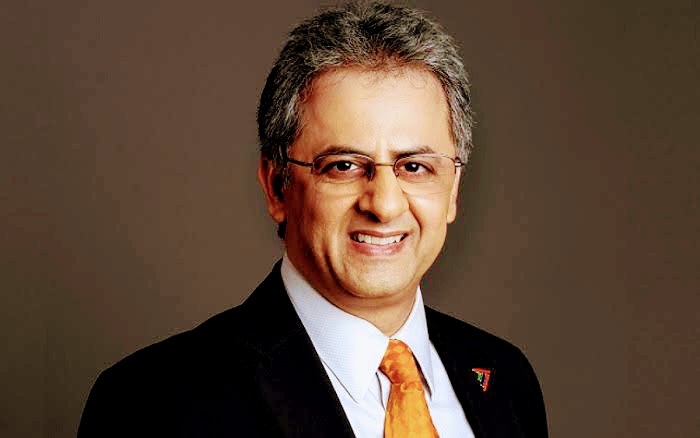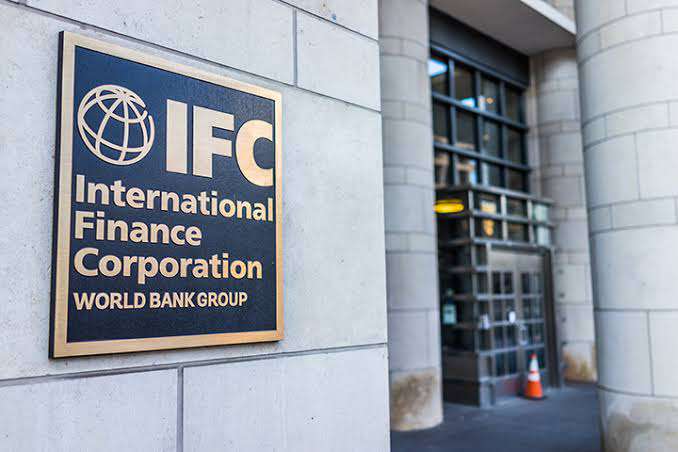Business
Amray’s tough task to reposition Union Bank

By OKEY ONYENWEAKU
A mixture of optimism and anxiety have gripped the teaming shareholders of Union Bank on the sustainability of its future. Once again another group named Titan Trust Bank limited (a subsidiary of TGI group), a relatively new entity in the Nigerian space and a much smaller bank has acquired Union Bank.
This came 10 years after a consortium, Union global partners limited, Atlas Mara and others recapitalized Union Bank in 2012. Recently, new owners named TTB have completely taken over the board of Union Bank.
After paying N191billion to acquire 89.39% shares, a new board emerged including Mr. Mudassir Amray as the Chief Executive Officer, and Mr. Farouk Mohammed Gumel as the Bank’s Chairman.
Meanwhile, all the former Board of Directors of Union bank have been retired. These include, Mr. Emeka Okonkwo as Chief Executive Officer, Mrs. Beatrice Hamza Bassey, Chair/non-executive director; Mrs. Obafunke Alade-Adeyefe, independent non-executive director and Mr. Richard Burret, non-executive director. Others are Mr. Ian Clyne, non-executive director, Mr kenroy Dowers, non-executive director; Mr. Paul Kokoricha, non-executive director; Mr.Taimoor Labib, non-executive director; Mr. Mark Patterson, non-executive director; and Mr. Emeka Ogbechie non-executive director.
But what has not been made clear to market stakeholders is why Atlas mara and co., the core investor, sold? While BH is still searching for an answer, many believe that all what the market entails is buy and sell especially when there is profit to be made. But could this reason suffice as to the attraction to dispose of such heavy shares and move into other more profitable ventures? Many have asked.
Market observers recall that in the last 10 years Union Bank has paid dividend only once. And that did not particularly impress the owners of the bank.
Nevertheless, commentators believe that the core investors may have divested either because they could not get expected returns or they may have been venture capitalist who have achieved good returns in terms of profit within the 10 years of investment and decided to exit.
Shareholders expectations from the new team
Change comes most times with anxiety; this seems to be the state of the minds of small shareholders of Union Bank now. But there are subtle assurances that the new owners are not only capable bankers but confident and wise.
There is a consensus that Mr.Tunde Lemo, a former Deputy Governor of Central Bank of Nigeria who also was CEO of Wema Bank who has been fingered as part of the new owners of the financial institution understands skillfully the Nigerian operating environment and will smoothen the rough edges if any.
One strong point the previous management can boast of is that presently Union Bank appears to have recovered from its huge non-performing loans and has since returned to profitability.
A shareholder of the bank, Mr. Boniface Okezie told Business Hallmark that the new owners of Union Bank are investors who are looking for better returns. He reckoned that the new management team was however, working hard to reposition the bank and make it stronger.
‘’We believe the new management team will transform Union Bank and make it more competitive. Union Bank belongs in the class of First bank and UBA and that is the target of the new management. In fact, Union Bank is now expected to return to its rightful place’’, Okezie said.
‘’I see the new owners reaping good results. The confidence the new owners are bringing in will surely pay off. The bank will soon begin to compete with the likes of Zenith Bank and UBA.’’, David Adonri, CEO, HighCap Securities limited also explained.
Challenges
These are very tough times for most businesses all over the world including banks. Mr. Amray is expected to perform near magic at a time the economy is not able to support businesses adequately. Banks currently are operating under very challenging times because of economic wide dislocations caused by insecurity and political instability.
There have been business shut downs in some arears in the North and South East which are threatening the lives of businesses, even the banks.
The negative impact of Covid-19 still lingers thereby disrupting the flow of businesses, funds, supplies, logistics among other related items in the world; these have also been responsible for the weak economy. Other challenges are spiral inflation, dwindling access to foreign exchange, loans defaults and shrinking profits with threats of insolvency.
The CBN’s low interest rate regime, though recently adjusted up to 13% is also not healthy for the banks as reduced income and low profitability have followed. These dislocations have not only forced banks to close some of their branches in the far Northern Nigeria, movement are now restricted as both bank staffers and customers fear for their lives.
Remittances have dropped, the price of crude, though currently high at over $100pbd, keeps fluctuating, shrinking incomes, high unemployment and biting poverty have all conspired to keep the economy down and by extension the banks. More worrisome is that the government is indebted to the tune of N41trillion while still planning to borrow over N6trillion to make up for the budget’s short fall in 2022.
Just recently, Fitch Ratings warned that Nigeria’s operating environment for banks could deteriorate in 2022–2023 given adverse global economic conditions sipping through to the local economy. There are serious pressures on banks’ profitability and asset quality, the report noted.
Many banks have cried out recently that AMCON charges are becoming troubling for their ability to deliver good returns to investors.
These and more challenges await the new management team of Union Bank led by Amray as the days roll by.
Performance
The banks first quarter result ended March 31, 2022 showed that gross earnings rose to N42.9 billion in 2022 from N36.4 billion in first quarter 2021.
The topline growth was driven by strong earnings from on-lending to key sectors in the economy.
A critical observation of its results show that net interest income after impairments also rose by 27 per cent to N12.9 billion in first quarter 2022 as against N10.1 billion in first quarter 2021.
While Non-interest income dropped by 19.1 per cent to N11.5 billion as against N14.2 billion in first quarter 2021, Profit before tax also declined by 8.8 per cent to N6.4 billion in first quarter 2022 compared with N7 billion in first quarter 2021.
Further details reveal that operating expenses rose by 3.9 per cent to N18 billion from N17.3 billion. Gross loans dropped to N882.9 billion from N899 billion in December 2021. Non-Performing Loan (NPL) ratio was flat at 4.3 per cent.
Former Chief Executive Officer, Union Bank of Nigeria (UBN) Plc, Emeka Okonkwo, said: “In 2022, we renewed our focus on turbocharging productivity and ensuring we fully leverage the strength of our digital channels, regional network and talent to maximise the bottom line.
“Our efforts are gaining momentum and notwithstanding a challenging economic climate in Q1 2022, our Net Interest Income after impairment grew by 27per cent compared to the same quarter in 2021 from N10.1 billion to N12.9 billion. Gross Earnings are also up by 18 per cent to N42.9 billion against N36.4 billion in Q1 2021.
This was bolstered by improved asset yields, treasury trading income and revenues from our alternate channels. We are steadily seeing increasing customer adoption with a 36 per cent YoY increase in active users on UnionDirect, our agency banking network, and increasing transaction volumes with a 20per cent YoY growth across our digital channels.’’
Union Bank’s five years performance from 2017 to 2021 revealed that Profit Before Tax rose from N13.008billion in 2017 to N20.690billion in 2021. Net operating income dropped from N105.964billion in 2017 to N100.1billion in 2021.
Recall that after a half century era of dominance of the local banking system up until the mid-1980’s, the bank has gradually seen its relative market disappear. Nevertheless, in the last few years, the institution has regained lost vigour and begun to sprint at an impressive pace with gross earnings and operating margins growing aggressively.
In an era of weak economy and political instability where it has been difficult for businesses to continue to exist as going concerns ,UBN has bucked common boardroom trends by showing a capacity to take on the vigours of turning in strong quarterly performances. But the concerns are still there.
After 2009 CBN intervention, the bank emerged from the burden of toxic assets, poor governance as well as weak leadership etc. and began to chart a new and straight path to profitability devoid of funfair.
Stock Performance
Union bank stock had reached an unprecedented height of N43.90 per share as at March 5, 2008. This was boom time in the equities market. In February 27, 2009 the stock price had plunged to N13.38 per share. Since this year Union Bank stock has hovered between N5 and N6.00 before closing on Friday July 1, 2022 at N6.15 per share.
Can Mudassir Amray stir Union Bank to greater height
Amray has just emerged as the new chief executive officer of Union Bank given the completion its acquisition of majority shares by Titan Trust Bank Limited, a subsidiary of TGI Group.
Amray has experience across foreign and local banks which helped to strengthen his hold on leadership and in decision-making
He obtained his Bachelor of Commerce from National College, University of Karachi, and then went further to get an MBA from the University of Santo Tomas.
Amray, analysts say, is a seasoned banker with exposure of over 25 years in senior management roles and a proven track record of adaptability in six geographical regions, including USA, Nigeria, Malaysia, Hong Kong, Singapore and Pakistan.
His experience cuts across corporate banking, investment banking, treasury, trade, and a bit of retail banking.
He was with Citibank New York for many years and held various senior positions from where he moved to TTB. He had also worked in other foreign and local banks in his career.





